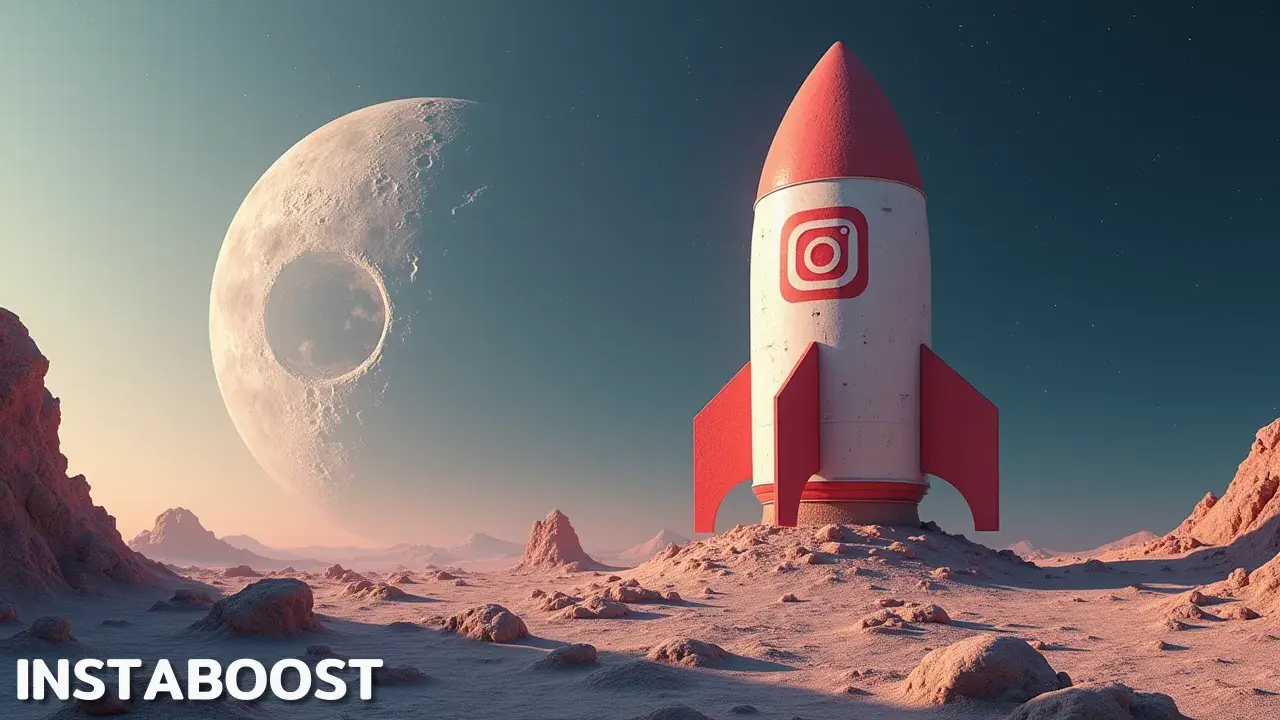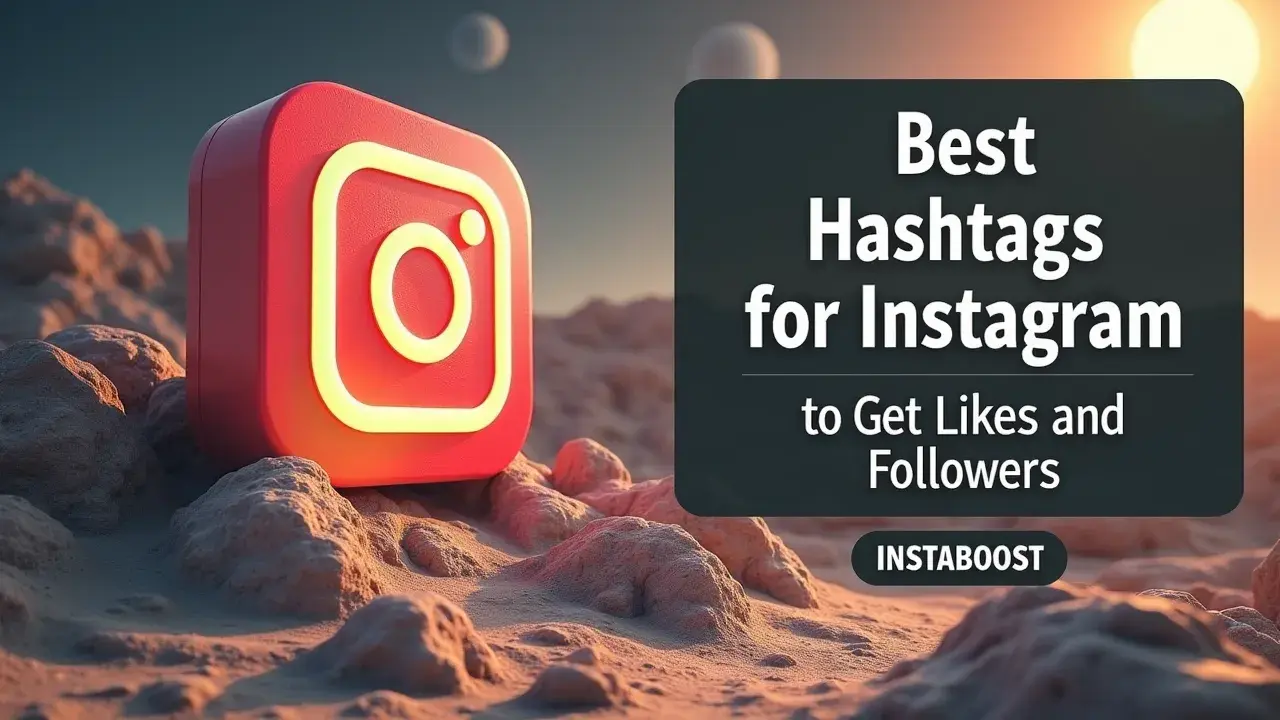Which Instagram Hashtags Truly Boost Likes and Followers?
Using relevant, well-researched Instagram hashtags can increase post visibility and attract engaged followers. Prioritize tags aligned with your content, niche, and goals rather than chasing the most popular terms that may be too broad. Mix specific niche tags with moderately competitive ones to reach users who value your topic. A thoughtful selection tailored to each post helps capture intent, improve discovery, and signal quality to the right audience.
Why Hashtags Matter in Instagram’s Crowded Arena
On Instagram, hashtags aren’t only about keeping up with trends – they’re actually a practical way to get your photos seen by people outside your usual circle. You know how sometimes you’ll notice a post with thousands of likes, or a random account that suddenly has a bunch of new followers? More often than not, careful hashtag use plays a big role in that. Instagram’s algorithm sorts through posts using these tags, so people end up finding photos and videos that match what they’re interested in.
But it’s not as simple as throwing in something broad like #love and hoping for the best. What really matters is choosing hashtags that put your photos in front of people who might actually care, instead of getting lost in a sea of posts. That usually means thinking a bit about what your photo is about, who might want to see it, and what they’re looking for – maybe something specific like #mondaymorningcoffee or a local tag instead of whatever is trending at the moment. Tools like Instagram profile growth tools often highlight this kind of targeted approach, focusing less on big numbers and more on authentic discovery.
Hashtags aren’t a guarantee for instant likes or followers, but they do make it more likely that someone new will come across your profile. If you use them thoughtfully, they can connect you to groups or communities with similar interests, whether that’s other people who love hiking, or folks living in your city, or just anyone who understands the joke in your caption. So before you post, it helps to think about hashtags as a small invitation, a way of letting your photo travel a little farther than it would on its own.

Why My Own Hashtag Experiments Changed Everything
I lost a bit of money figuring this out, but honestly, I don’t regret it. When I got started, I really believed the advice that using a bunch of popular hashtags would make my posts take off on Instagram. I spent weeks going through all these “best hashtag” lists and even put more money than I should have into ads. At the end of it, all I got was a handful of random likes, but not a single follower who actually cared about what I posted.
That whole stretch made something clear: hashtags aren’t some magic trick – they’re tools, and you need to actually think about how you use them. What really made a difference was paying attention to my analytics and trying out different things, instead of just chasing whatever hashtags were trending. For example, instead of tagging a travel photo with #travel or #vacation and hoping for the best, I started using more specific tags like #hiddenbeaches or #solotravelers, alongside some broader ones. That’s when people who genuinely cared about those topics started showing up and having real conversations. For a moment, I even considered some of those options where you order Instagram followers online, just out of frustration, but it also made me realize why those “get 1,000 followers overnight” ideas never really lead anywhere. There isn’t a shortcut; it’s more about slowing down, watching what works, and adjusting as you go – even when it feels like it would be easier to buy into the stuff that promises quick results.
The Art of Strategic Hashtag Selection
It’s funny – on Instagram, the smartest approaches are often the least flashy. A lot of people grab every trending hashtag they can find, thinking it’ll boost their likes or followers, but I’ve noticed that the accounts that actually grow put more thought into it. They don’t rely on those giant tags like #love or #instagood, because posts using those get buried almost instantly. What seems to work better is picking a mix of hashtags that are a bit more specific, like ones that relate to a hobby, a location, or even a style of photography. For example, instead of tagging #photography on a cityscape, someone might use #urbanshots or #moodygrams, or a tag tied to the particular city, or even to the camera they use, like #fujifilmx100v.
These smaller tags don’t have as much competition, so the right people actually see the post – people who really care about what’s being shared. I know there are shortcuts out there, like apps where you can buy Instagram likes, but honestly, it’s not about blowing up overnight or using tricks to get empty numbers; it’s more about connecting with people who genuinely want to follow along. It takes a little more time to find hashtags that actually fit, and to pay attention to the kinds of communities you want to reach, but in the end it feels a lot more solid than chasing whatever’s trending that week.
The Moment Popular Hashtags Let Me Down
To be honest, I nearly stopped trying right here. I’d spent weeks gathering every “best Instagram hashtags” list I could find, but my posts were still barely seen – sometimes they even got less attention than before. On paper, using the most popular hashtags like #love or #photooftheday seems logical. You’d think tossing those onto your posts would lead to a surge in likes and followers.
But that’s not really how it plays out. What I ran into was that these big hashtags are so crowded that your post gets buried almost immediately. It sits for a second among millions of others, then it’s gone before anyone who might actually connect with it even has a chance to notice. I also started seeing more comments from obvious bots or spam accounts instead of anyone real. There were days I wondered if Instagram was worth the effort. Those “quick boost” hashtag lists don’t mention that the more popular a tag is, the less chance you have of standing out.
If you want genuine engagement or to build a real audience, leaning on those top hashtags doesn’t get you anywhere. The accounts I saw actually growing were using more specific hashtags – things tied to their niche, their local area, or a small community that shared their interests. The tags fit what they were posting, and it showed. At some point, I read about how much more important it is to focus on relevance and connection than to just improve your Instagram exposure by chasing numbers. It wasn’t about gaming the system – it was about knowing who they actually wanted to talk to. That’s when things shifted for me. I stopped worrying about big numbers and spent more time picking hashtags that made sense for who I was hoping to reach, even if it meant the results were slower or less obvious at first.
Building a System That Outlasts Trends
It’s easy to get caught up chasing every new “best hashtags for Instagram” list, but after a while, it all starts to feel the same. The truth is, hashtags aren’t this magic fix that everyone makes them out to be. A lot of accounts that steadily grow aren’t worried about trending tags – they’re focused on what makes sense for them and their audience. They pick a handful of hashtags that actually fit what they post about, switch them out now and then, and pay attention to which ones seem to help their posts reach the right people. Over time, those small adjustments matter more than trying to jump on whatever’s popular that week.
Hashtags are a tool for people to find you, not a shortcut to instant popularity. If all your energy goes into following the latest “top hashtag” advice, you end up missing what’s actually important, which is understanding why your audience cares in the first place. The most meaningful growth comes from getting your posts in front of people who genuinely want to see what you’re sharing. There are always things like share boost for content creators floating around online, but those quick fixes rarely matter as much as trying different things, checking what’s working in your analytics, and making small changes.
The stuff that promises “free Instagram followers in 1 minute” always sounds appealing, but anyone who’s stuck with it for a while knows that it’s showing up, posting regularly, and actually connecting with people that moves things forward. Hashtags get you started, but after that, it’s about the kind of space you create and whether people want to stick around.
Why Hashtags Work Best When They’re Personal
I’ve realized hashtags on Instagram aren’t really about chasing trends or grabbing whatever’s popular that week. They work best when you use them in a way that actually helps you reach people who’ll care about what you’re sharing. For a while, I’d try to keep up with every “top hashtag” list, thinking that was the way to grow.
But I started noticing those accounts with steady, loyal followings weren’t piling on the same broad tags like #instagood or #beautiful. Instead, they’d put together a handful of hashtags that felt specific to them – things like local tags, niche interests, or even hashtags they’d come up with themselves and encouraged their followers to use. Hashtags, I think, end up being part of your profile, almost like a fingerprint, instead of just a tool for getting likes. It makes a difference to mix in a couple of the bigger tags, but mostly stick with ones that really fit what you’re posting.
Say you’re taking pictures of food in Austin – there’s nothing wrong with #foodstagram, but pairing it with something like #austinfoodie or #atxeats means people nearby, or who care about the same scene, are more likely to find you. And you don’t have to fill up all 30 slots; it feels better to use fewer, more accurate tags than to reach for the maximum. Over time, if you keep your hashtags in line with what you’re actually sharing, you start to notice the right kind of people finding you, and it’s a slower kind of growth, but it sticks.
The quick fixes people talk about – getting a big jump in followers overnight – never led to anything lasting for me. What made more of a difference, honestly, was when I’d get real engagement through comments, and mostly, it’s been about figuring out what fits and letting the rest go, even if it means things move a little more quietly.




